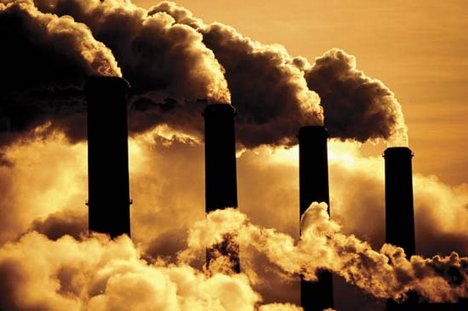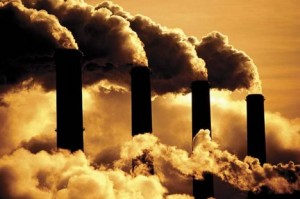
MAKATI CITY (Mindanao Examiner / July 16, 2013) – Filipino environmentalists and advocates have marched on Monday in front of a posh hotel in the Philippines’ financial district where a United Nations meeting on climate finance is being held and called on the delegates of richer or developed countries, which emitted the most greenhouse gas emissions throughout history, to “pay up their climate bill” by funding the adaptation and mitigation efforts of poorer or developed countries and by reducing their own greenhouse gas emissions.
Some 200 people, mostly members of civil society networks and movements, led the march, according to organizers.
Aksyon Klima Pilipinas (AKP), the Philippine Movement for Climate Justice (PMCJ) and the Freedom from Debt Coalition (FDC) led the march. In their mobilization, the activists presented a “billing statement” for developed countries which listed climate change impacts, including casualties and damages from typhoons, decreasing agricultural yield and fish kills.
Naderev Saño, of the Philippines, and Mark Storey, of Sweden, co-chairmen of the Long-Term Finance program under the United Nations Framework Convention on Climate Change (UNFCCC), dropped by the mobilization to receive the joint statement of AKP, PMCJ and FDC.
The first meeting of experts for the Long-Term Finance program under the UNFCCC was held at Dusit Thani Hotel. The program aims to help raise at least USD 100 billion every year by 2020 for the adaptation and mitigation activities of poorer countries like the Philippines, which also happens to be among the most vulnerable to the impacts of climate change.
“The Philippines and other poorer countries are doing what they can to raise their own funds for adaptation and mitigation, but those who have the most responsibility should do their long-overdue share,” Voltaire Alferez, AKP national coordinator, said in a statement sent to the regional newspaper Mindanao Examiner.
The type of funds raised for climate finance also matters, said Gerry Arances, PMCJ national coordinator.
“There are existing funds but most are coursed through private sector facilities, repackaging of development funds, and in the form of loans instead of grants. What must be mobilized are public funds to ensure that developed countries are paying their climate debt and to eliminate climate profiteers, who are most likely also the culprits in the private sector,” Arances said.
In addition, FDC also “deplores the fact that the same powerful global interests and entities responsible for the economic domination and underdevelopment of the South, including the Philippines are the same forces mainly responsible for the climate crisis,” according to its president Ricardo Reyes.

